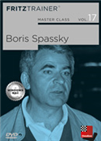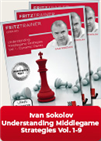A 6/7 start, 2 losses in the final rounds
Akiba Rubinstein belongs to the group of remarkably strong players who never managed to become world champions. Born in Stawiski (a city located in northeastern Poland) in 1880, he was supposed to face Emanuel Lasker in a match for the World Championship, a contest which was cancelled due to the outbreak of the First World War. During his illustrious career, Rubinstein obtained wins over the likes of Carl Schlechter and José Raúl Capablanca.
Honouring the great Polish master's memory, a 10-player single round-robin was organised in Polanica Zdroj, with main sponsor ALREH Medical allowing for the presence of a strong field of grandmasters. The tournament took place on 17-25 August and included 3 players rated 2700 or above, while the lowest-rated participant in the field was 4-time Polish champion Mateusz Bartel, rated 2630. The time control was 90 minutes for the game, with 15 minutes added after move 40 and 30-second increments from the first move.
 In this video course, experts including Dorian Rogozenco, Mihail Marin, Karsten Müller and Oliver Reeh, examine the games of Boris Spassky. Let them show you which openings Spassky chose to play, where his strength in middlegames were and much more.
In this video course, experts including Dorian Rogozenco, Mihail Marin, Karsten Müller and Oliver Reeh, examine the games of Boris Spassky. Let them show you which openings Spassky chose to play, where his strength in middlegames were and much more.Jan-Krzysztof Duda, Vincent Keymer and Alexey Sarana were the top seeds. A number of formidable, experienced players were also in the mix - seeded fourth to sixth were Pentala Harikrishna, Vladimir Fedoseev and Radoslaw Wojtaszek, a remarkably strong trio.

ALREH Medical's Radoslaw Sliwerski made the ceremonial first move in the game between Vincent Keymer and Andrei Volokitin from round 6 | Photo: Official website
Keymer had a perfect 4/4 start, with his consecutive wins featuring both astounding tactical awareness and precise technique when needed. In round 5, he was held to a draw by Wojtaszek, which was followed by a great win over Andrei Volokitin (analysed below). After drawing David Navara in round 7, Keymer had a 2-point advantage over Duda and Vladimir Fedoseev, with 2 rounds to go.
Curiously, the German prodigy secured tournament victory with a round to spare despite losing his round-8 encounter against Sam Shankland. The 19-year-old also lost his final game - against local hero Duda - but still finished a full point ahead of a 4-player chasing pack consisting of Navara, Shankland, Fedoseev and Duda.
Keymer's showing in Poland gained him 10.7 rating points, as he is now ranked 19th in the live ratings list. Keymer is 1 of 4 junior players (aged 20 or younger) belonging to the exclusive 2700 club. The prodigy from Mainz will lead the German squad in the upcoming Chess Olympiad in Budapest.
 In this Video-Course we deal with different dynamic decisions involving pawns. The aim of this Course is to arm club/tournament players with fresh ideas which they can use in their own practice.
In this Video-Course we deal with different dynamic decisions involving pawns. The aim of this Course is to arm club/tournament players with fresh ideas which they can use in their own practice.
Sam Shankland (3rd place), David Navara (2nd) and Vincent Keymer (1st) during the closing ceremony in Polanica Zdroj | Photo: Official website
Keymer 1 - 0 Volokitin
Analysis by Johannes Fischer
Final standings
| 1 |
10 |
GM |
Keymer, Vincent |
GER |
2719 |
6 |
0 |
5 |
24,25 |
| 2 |
4 |
GM |
Navara, David |
CZE |
2674 |
5 |
2 |
1 |
22,50 |
| 3 |
9 |
GM |
Shankland, Sam |
USA |
2669 |
5 |
1,5 |
2 |
22,50 |
| 4 |
7 |
GM |
Fedoseev, Vladimir |
SLO |
2687 |
5 |
1,5 |
2 |
20,00 |
| 5 |
5 |
GM |
Duda, Jan-Krzysztof |
POL |
2733 |
5 |
1 |
2 |
22,25 |
| 6 |
6 |
GM |
Sarana, Alexey |
SRB |
2717 |
4,5 |
0,5 |
1 |
19,00 |
| 7 |
3 |
GM |
Wojtaszek, Radoslaw |
POL |
2680 |
4,5 |
0,5 |
0 |
20,25 |
| 8 |
2 |
GM |
Harikrishna, Pentala |
IND |
2692 |
4 |
0 |
0 |
17,50 |
| 9 |
8 |
GM |
Volokitin, Andrei |
UKR |
2667 |
3,5 |
0 |
2 |
14,25 |
| 10 |
1 |
GM |
Bartel, Mateusz |
POL |
2630 |
2,5 |
0 |
0 |
11,50 |
All games
Links
























